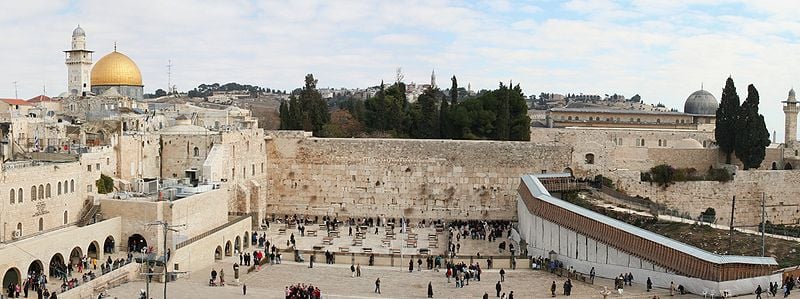
What will Jerusalem be like in twenty years? Today, the city is divided into predominately Jewish west Jerusalem and predominately Palestinian east Jerusalem. East Jerusalem itself is striped with both Palestinian and Jewish neighborhoods. Quality of life in different neighborhoods varies dramatically, but it is safe to say that Jerusalem’s Jews enjoy a far greater range of rights and benefits than Jerusalem’s Palestinians. These inequalities are getting worse.
Firstly, a bit of history: the UN’s 1947 Resolution 1811 made Jerusalem a separate area administered by a Trustee Council, not by Israel. In June 1980, the Security Council adopted Resolution 476 which declares “all legislative and administrative measures and actions taken by Israel, the occupying Power, which purport to alter the character and status of the Holy City of Jerusalem have no legal validity and constitute a flagrant violation of the Fourth Geneva Convention relative to the Protection of Civilian Persons in Time of War and also constitute a serious obstruction to achieving a comprehensive, just and lasting peace in the Middle East.”
So, the construction of new settlements in Jerusalem is illegal under international law and has been condemned by the UN Security Council on several occasions. To make matters worse, existing Jewish or Palestinian neighborhoods are treated differently by the governing municipality. A former employee of the Jerusalem municipality confirmed that available funds are not split equally between Jewish and Palestinian neighborhoods. The most flagrant example is the sports department: 99.5 percent of the budget is spent on Jewish areas.
Infrastructure for health and security services is also very uneven, depending on the nature of the neighborhood. Trash collection in Palestinian neighborhoods is poor. Pedestrians are forced to walk on the street to avoid the trash buildup on the sidewalks. Stray dogs are attracted to the mess and residents have been attacked. The Palestinian neighborhood of Tsur Baher has a population of 20,000, but only 12 streets are lucky enough to receive trash collection.
There are no building restrictions in Tsur Baher. The Wall runs straight through the area, and much of the land has become part of a neighboring Jewish settlement. Access to healthcare and safety services is a huge problem for Tsur Baher’s residents. Emergency services cannot access some parts of the neighborhood because of a lack of roads. A police order that prevents ambulances entering Palestinian neighborhoods without an escort makes things even worse. Children and other residents have died in house fires and because ambulances don’t arrive in time. One resident quoted in Guarnieri’s article says it is not unusual for an ambulance to wait thirty minutes for a police escort at the entrance of the neighborhood. “People have died in this situation,” he says.
Jewish neighborhoods, on the other hand, are clean, well-lit, and safe. Grassy medians and statues adorn streets in Jewish neighborhoods and trash is collected regularly. One of the main reasons for this inequality is the “National Priority” scheme set up in 1998. The program gives economic incentives to approved towns and neighborhoods. Predictably, it focuses on Jewish areas; only four Arab villages were selected to participate.
Further inequality in Occupied Territories?
Habitual inequality in Israeli society and economy is not only manifested in Jerusalem – don’t forget that Israel maintains some control over the Occupied Territories of the West Bank and Gaza. A video posted on Al Jazeera over the weekend describes a sewage canal originating in Israel but flowing through the West Bank. Israeli citizens have been dumping untreated and toxic chemical waste directly into the canal, which then flows over Palestinian agricultural land. Residents have reported skin diseases and respertory problems as a result.
The Israeli government prevents the Palestinian Authority from fixing the problem. As Nisreen El-Shamayleh reports, “Israel has banned plans by the Palestinian Authority to build pipes and pumps to treat and divert wastewater away from the affected villages.”
The recent push for direct talks between Israel and Palestine has been put on hold as the Arab League continues to call for written concessions by the Netanyahu government before talks can proceed. Prime Minister Netanyahu has spoken against these concessions, highlighting the settlement freeze instituted several months ago as a concrete demonstration of Israeli goodwill. This is not good enough. The construction of Israeli settlements must be fully stopped until a formal peace agreement can be negotiated.
The current situation in Israel and Palestine is unsustainable – continuing the practice of giving Israel’s Jews privileged access to basic services like health and security at the expense of Israel’s Arabs will only deepen social and economic divisions between these peoples. Settlements, refugees, and borders are not the only problem Arab, Israeli, and American leaders need to tackle in the upcoming talks, whenever they begin. Economic and social inequalities are the biggest problems facing this area’s future.